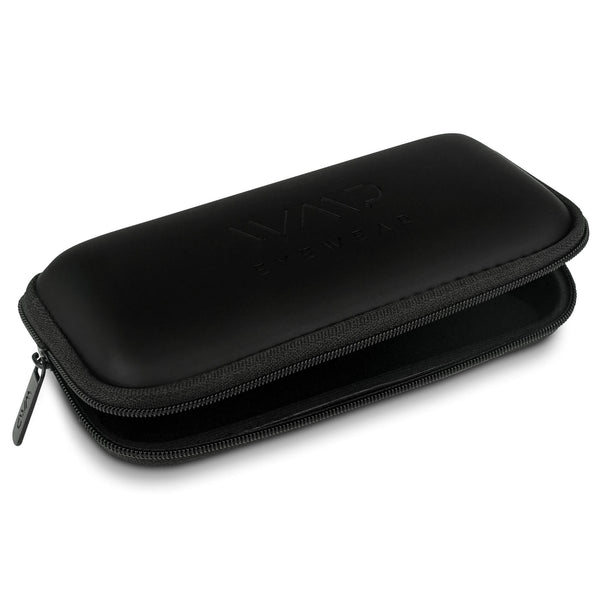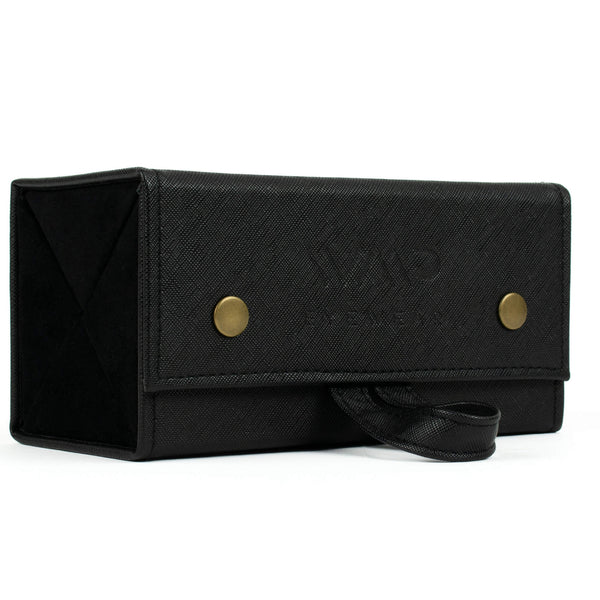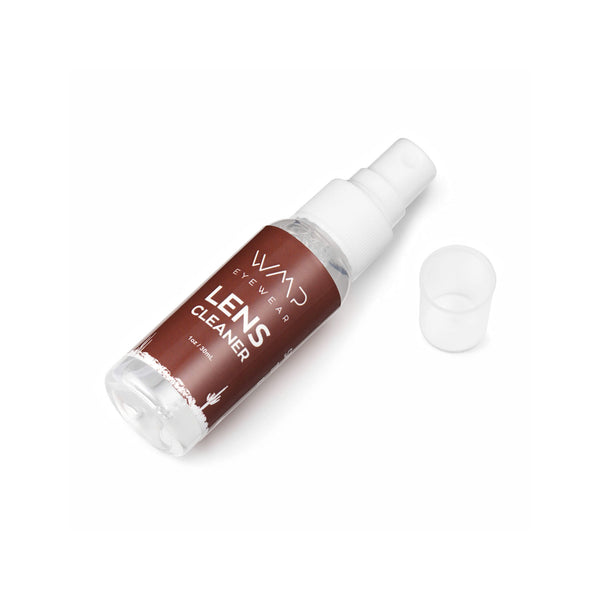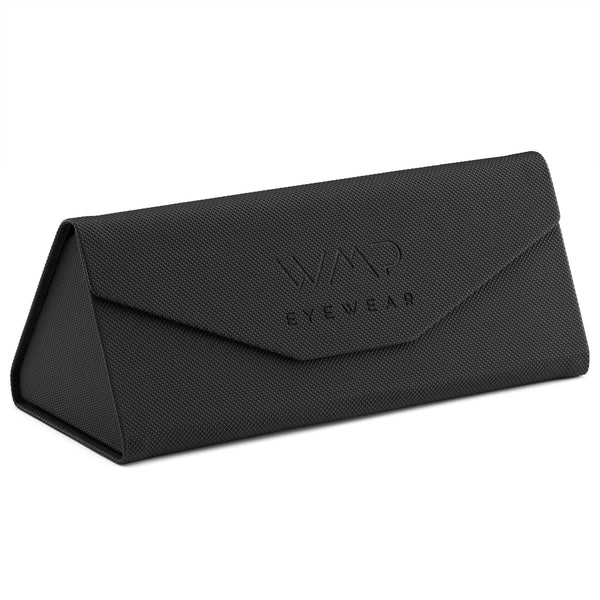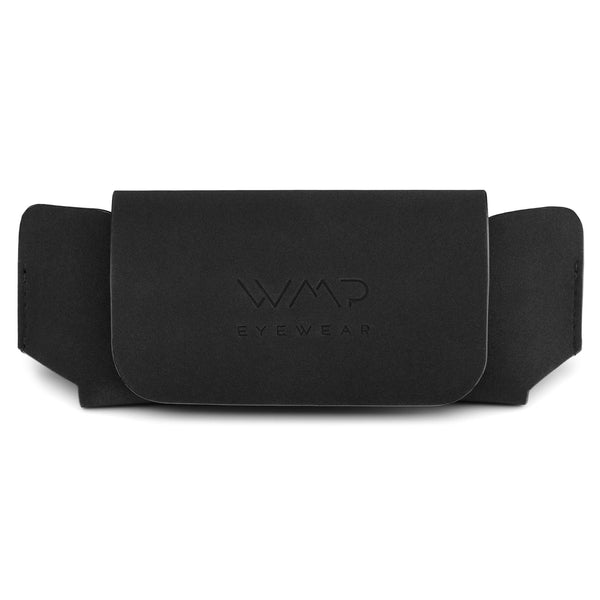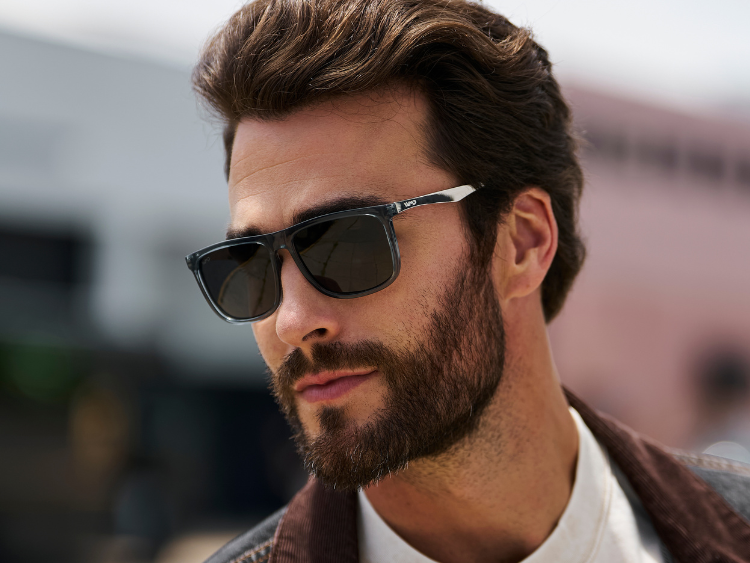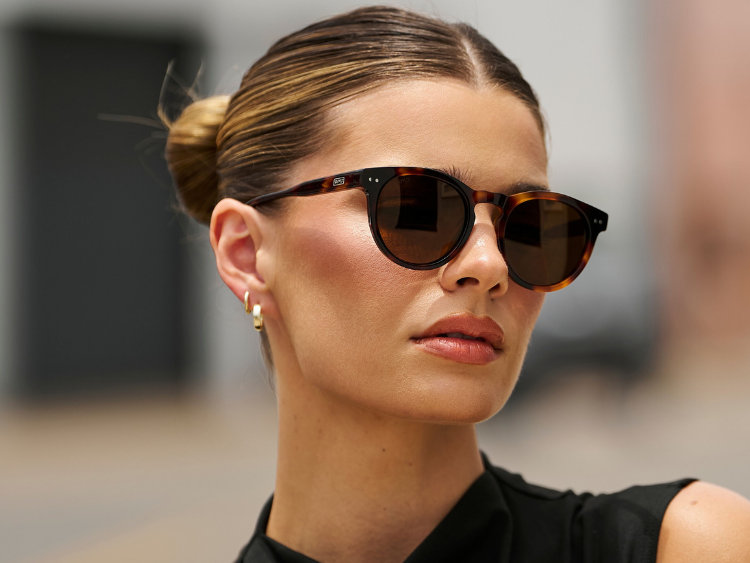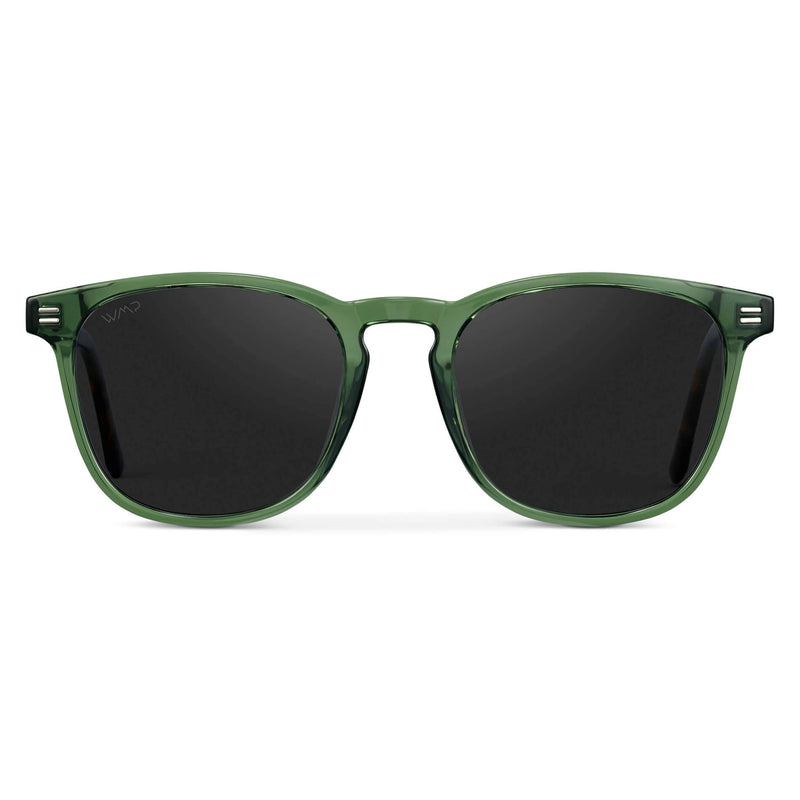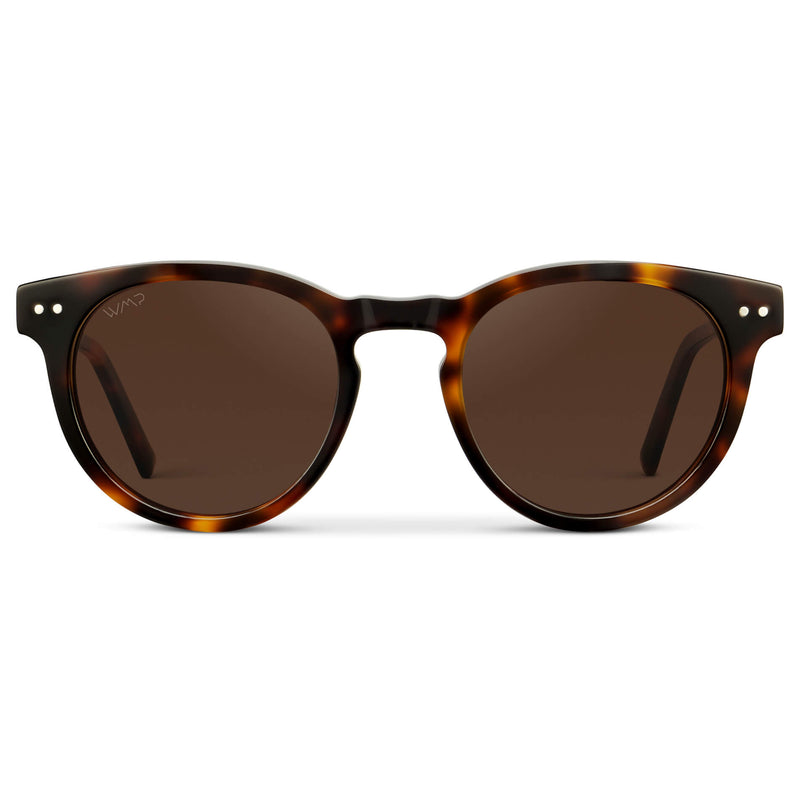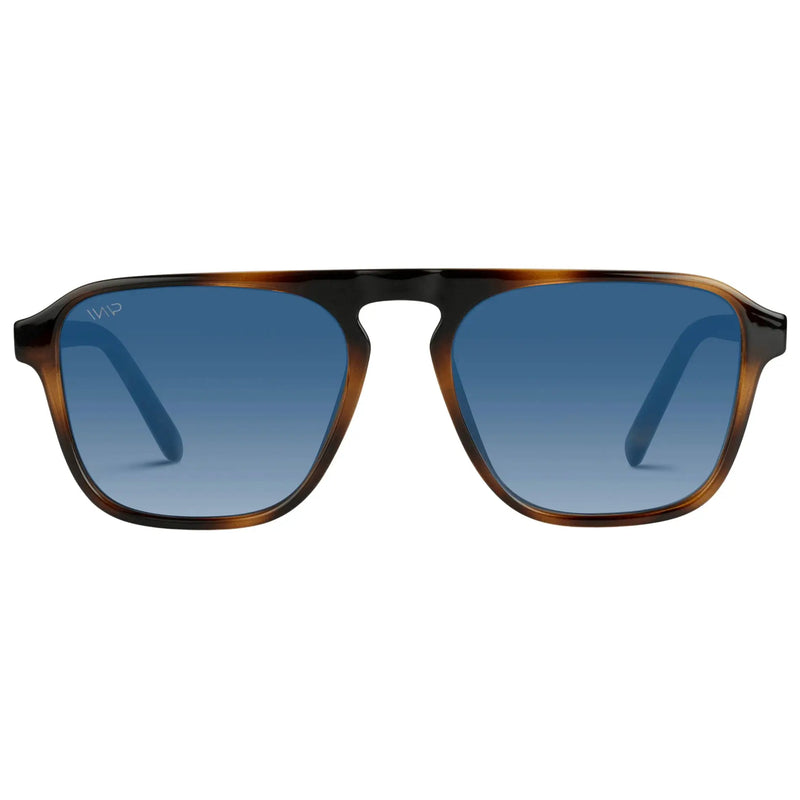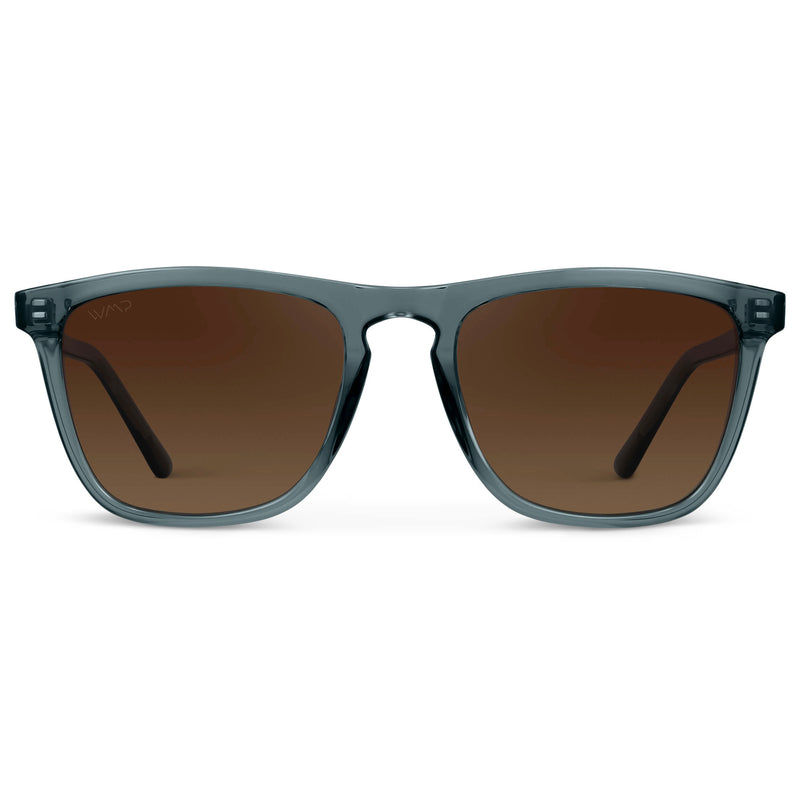Pros & Cons of Polarized Sunglasses & Polarized Lenses

Imagine you’re at brunch with your friends. One of your pals pulls out a brand new pair of sunglasses that look great on her. Then, she says something that elevates their value: they’re polarized.
Polarized sunglasses tend to be more expensive, so we often view them as luxury items. Maybe you’ve always heard about the benefits of polarized sunglasses are but never bought a pair because of the high price.
The great news is that you can find plenty of quality women’s polarized sunglasses that won’t drain your bank account. Now that you know the option is on the table, we’ll discuss the pros and cons of polarized sunglasses and polarized lenses so you can decide if they’re right for you.

Pros & Cons of Polarized Sunglasses
Polarized sunglasses contain special lenses with a polarizing film or special chemicals applied to the lenses to make them polarized. The main purpose of polarized sunglasses is to protect your eyes from glare.
There are both vertical and horizontal types of light waves. Vertical light is easier for our eyes to see, while horizontal light overwhelms our vision and causes uncomfortable glare. Polarized lenses work by blocking this horizontal light so that it’s easier for us to see.
The Benefits of Wearing Polarized Sunglasses
One of the main benefits of polarized sunglasses is that they block glare so you can see better. When wearing polarized sunglasses, it’s safer to drive your car because you won’t have to squint when looking into the sun.
Among other advantages, polarized sunglasses prevent headaches and eye strain that comes from looking at glare or being in bright environments for long periods.
Say you enjoy fishing out on the water but always suffer from eye tension in your regular sunglasses. If you wear polarized ones, they’ll block the reflection of glare off the water and help your eyes relax.
The other major plus is that polarized lenses make the images around you clearer. If you’re outside in nature, you’ll get a better look at the beauty around you without compromising eye safety.
The Cons of Polarized Lenses
One of the cons of polarized lenses is that they make it difficult to see LCD screens. If you have one in your car or look at your phone a lot when outdoors, polarized sunglasses will make it harder to read the screen.
Another one of the drawbacks of polarized sunglasses is that they don’t automatically offer 100% UVA/UVB protection. You may spend a lot of money on a pair of polarized sunglasses thinking they’re protecting your eyes from the sun’s harmful rays but they’re actually not.
A common downside to polarized sunglasses is that they’re a more expensive option, especially if they’re prescription. And If you buy cheaper ones, then it may be just a flimsy film that offers polarization, and it will quickly scratch off the lens.
However, if you shop somewhere like WMP Eyewear or Fuse Lenses for men’s polarized sunglasses, you can find well-made shades at a reasonable price.
How to Pick the Right Protection For Your Eyes
Know What Kind of Light You're In
Even though sunglasses may seem like a one-size-fits-all solution, that’s not the case. You need to choose your sunglasses based on the type of light you’re in.
There are two ways to do this. You can check if the label shows the visual light transmission (VLT), which is the percentage of how much light the sunglass lenses let through. There are four categories of VLT.
- 0-19%: Perfect for those sunny days without a cloud in the sky.
- 20-40%: Best for everyday use where you get a mix of clouds and sun.
- 40-80%: Works well in cloudy or overcast weather.
- 80-90%: Only for extremely dim or night conditions, usually for people with sensitive eyes.
The other way to assess this is by the tint of the sunglasses. The darker tinted they are, the less light they will let in. The lighter they are, the more light comes in. That’s why snowboarding sunglasses are often tinted yellow or pink. These colors work well in low-light conditions to block glare but still make it possible for athletes to see on the slopes.
Know Your Environment
The next item to think about when picking the right protection for your eyes is the environment you’ll be in when using the sunglasses.
For example, downtown Los Angeles has 292 days of sun per year on average. If you live in downtown LA and need a pair of sunglasses for driving, then you’ll need to pick a pair that’s best for sunny environments.
On the other hand, if you’re a golfer, then you’ll want a pair golfing sunglasses that block light but also help you see clearly on the course. You should buy blue or brown lenses in sunglasses because they offer clarity and improved depth perception to help you hit that hole-in-one.
Know What's Best for Your Eyes
You also need to consider your situation and what’s best for your eyes. Your personal preference may be that you like improved clarity, so you want polarized sunglasses. However, for people with mutated photoreceptor cells, polarized sunglasses make them feel uncomfortable because they can’t see vertical light properly.
If you’re unsure of what’s best for your eyes, go to a store like Warby Parker and try a few pairs of sunglasses on until you have a better idea of what works for you.
Of course, every pair of sunglasses you own should cover 100% UVA/UVB protection, or be rated for UV400 protection. These two classifications of lenses protect against sun damage that causes cancer, macular degeneration, vision loss, and more.
Best Polarized Sunglasses Under $50
While you could easily shell out $200 for a pair of polarized sunglasses, that’s not necessary. Expensive sunglasses cost so much due to the Luxoticca monopoly, not because they’re made better.
So, save your money for something else and check out these best polarized sunglasses under $50 that all offer 100% UV protection.
The Frame for a Modern Look
If you love aviators but want a modern spin on the iconic look, then check out Emerson. These square aviators feature a single nose bridge and thick acetate frames to help you look like the smartest person in the room. They’re available in six colors, and at only $39, you can buy them all.
The Shade for a Retro-Inspired Look
Take it back to the 70s with Tate. These retro frames feature a thick, round acetate frame that screams groovy. Tate’s slightly cateye shape looks good on almost every face shape, making these polarized sunglasses a wardrobe staple that will never go out of style.
The Pair for Any Occasion
When you need a versatile pair of polarized sunglasses that will work for an outdoor wedding or a day at the park with friends, go with Wesley. These square polarized sunglasses offer a timeless, vintage look with three transparent colors. And if colors aren’t your thing, they come in a sleek black frame as well.
Frequently Asked Questions
Which Is Better UV or Polarized Sunglasses?
UV sunglasses are better than polarized ones because they protect your eyes from the sun’s harmful rays. However, polarized sunglasses can be just as good as long as they offer UV protection. The problem is that some polarized sunglasses don’t have UV protection, and those are the ones you want to stay away from.
Is Polarized Worth the Extra Money?
Yes, polarized sunglasses are worth the extra money, especially if you need them for something like driving. A polarized lens protects your eyes from glare, which can cause car accidents due to minimized vision in bright conditions.
However, you don’t have to spend hundreds of dollars to get quality polarized sunglasses. Shop at smaller brands, including Warby Parker, WMP Eyewear, or Quay, which all sell polarized sunglasses without the excessive markup that designer labels apply to prices.
Are There Any Specific Activities or Sports Where Polarized Sunglasses Are Particularly Beneficial?
Polarized sunglasses are particularly beneficial in sports where there will be a lot of excessive glare due to the sun’s reflection off of snow or the water. Anyone who enjoys activities like fishing, snowboarding, or wakeboarding will be more comfortable in polarized sunglasses.
